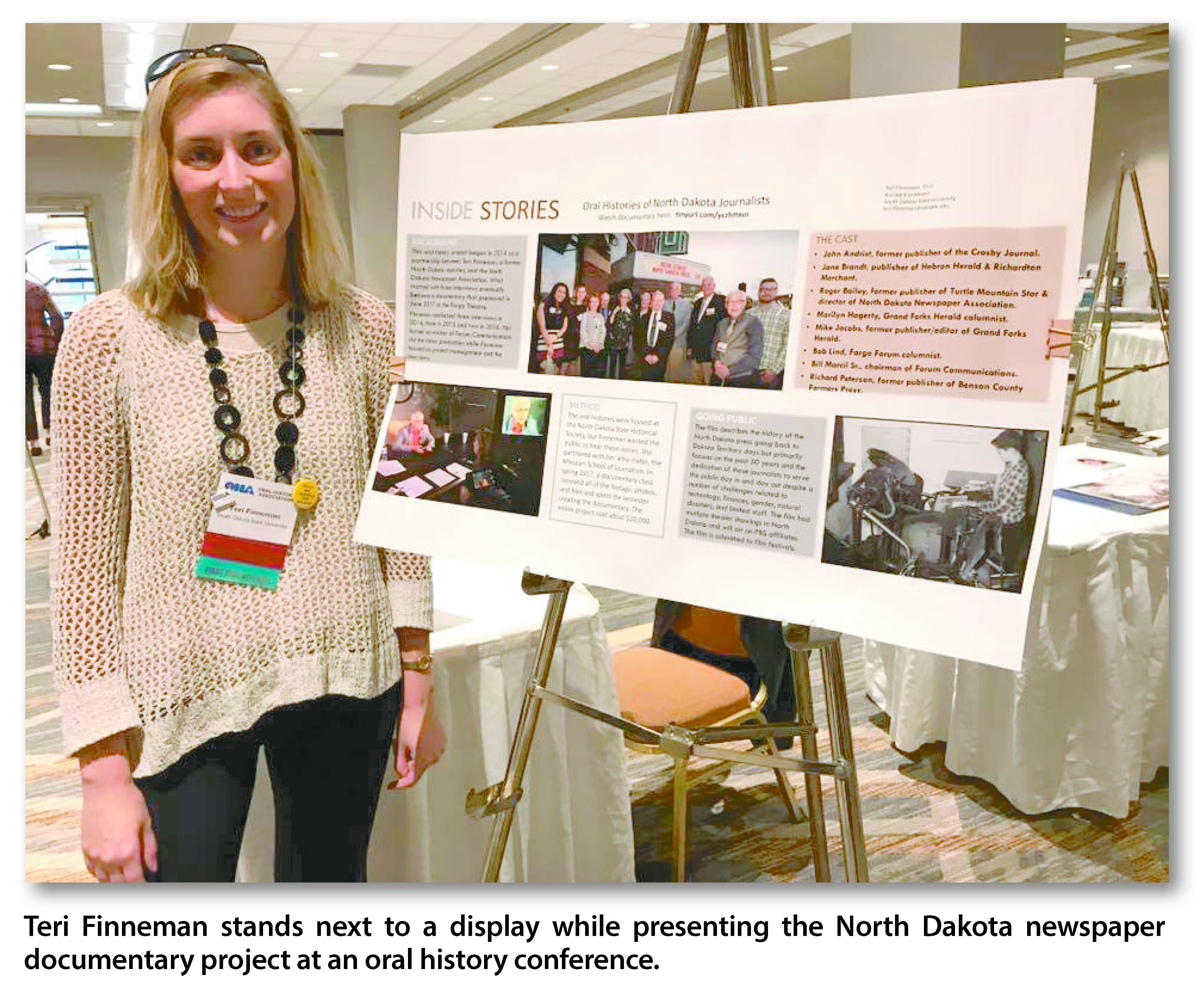Project to test new business models for Midwest papers
1/19/22 (Wed)

While Teri Finneman, a journalism professor at the University of Kansas, was conducting her award-winning research into the ways COVID-19 impacted community journalism in the Midwest, she spotted a problem faced by newspapers that has reached a critical point: newspapers have been operating under a business model nearly as old as the industry itself. Now, as part of a diverse research team, Finneman is studying new ways that newspapers can approach finances in a changing economy that will cumulate with business model solutions that can be adopted by community papers across the U.S.
“We are using the same business model that was invented with the penny press,” Finneman explained of the issue at the heart of the research project. “(The project is) essentially looking at how to reduce the reliance on advertising, and what are other potential funding possibilities that could offer more stability going into the future.”
The study will first employ two surveys: The first, underway now, asks publishers to complete a five-minute questionnaire online that examines what financial models are working today, and what ideas they feel might be worth exploring. The second survey focuses on readers – what types of content drive them to pick up newspapers or seek them out online in the first place.
The research project won’t simply produce a list of untested financial ideas for publishers. Instead, once the initial research is complete, Finneman’s team will develop a focus group of Midwest publishers to come up with a hypothesis formula for what the data suggests newspapers might do differently to generate revenue. Those ideas will be applied to a group of weeklies in Kansas who will adopt them and produce real evidence about what models are the most effective for weekly newspapers. The results? Tried and true business models that newspapers can use to drive up revenue and reduce reliance on advertising alone.
Finneman said that North Dakota newspapers can help by filling out the publisher surveys (available at https://tinyurl.com/weeklymodel), and writing editorials and columns that explain the situation faced by newspapers today. “Research has found that the general public has absolutely no idea that the newspaper financial situation is so bad … We need to do a better job to help the general public understand, as we’re in the midst of a pandemic and people are saying how important it is to have local information that no one else is covering. We have to go on a public relations surge right now and stand up for ourselves and fight back, and get over our hesitancy. If we aren’t going to advocate for ourselves, who is going to?”
The research team is led by Finneman, along with SDNA, the Kansas Press Association, and journalism researchers at the University of Colorado Boulder, University of Minnesota, and University of Tennessee. Funding to support the work has been granted by the SNPA Foundation, the University of Kansas School of Journalism, the North Dakota Newspaper Association Education Foundation, the South Dakota Newspaper Association, the Nebraska Press Association, and the Kansas Press Association.
To learn more, email sarahes@ndna.com.
For further information, contact the
NDNA Executive Director,
866-685-8889 or director@ndna.com
